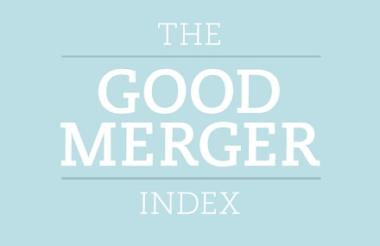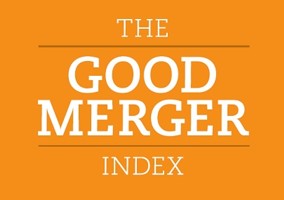Some 81 mergers involving 154 charities took place in the year to March 2018, according to a new report.
The Good Merger Index, published by consultancy Eastside Primetimers, found that less than one in every thousand of the 168,000 charities on the register was involved in a merger last year.
There were slightly more mergers this year than in previous years. In the year to March 2017 there were 70 mergers involving 142 charities, with 54 mergers involving 116 organisations the previous year and 61 mergers involving 129 organisations the year before that.
The report found that mergers often took place in situations where one of the charities was in financial trouble, and that mergers were often a form of rescue from financial and strategic weakness.
It found that more than two thirds of the 81 mergers, 56, were takeovers, in which a smaller charity was absorbed into a larger one. This is a higher proportion than the 56 per cent recorded in the previous index.
Only 17 of the mergers, 21 per cent, were “mergers of equals”, lower than 29 per cent the previous year, signified by the coming together of similar-sized organisations with shared governance structures.
Another six involved one charity becoming a subsidiary of another. One involved an asset swap in which services moved between two charities that preserved their own identities. And one involved the formation of a group structure.
Meanwhile, the average operating surplus as a percentage of turnover for the larger acquiring organisations was 3 per cent while for the average smaller charity merging or being taken over it was -17 per cent.
The report says “these figures show that financial distress is still the key motivator for charities considering whether to merge”.
The report found that most mergers were between health and social care charities while medical charities accounted for a tenth of all mergers.
Meanwhile, at least 11 per cent of all mergers were among infrastructure bodies.
‘Slow to respond’
The mergers involved the transfer of £266.6m of income from one charity to another. The combined income of the organisations was £1.3bn.
The biggest deal was between social care charities Choice Support and mcch, completed last week, with a combined income of £69.5m.
“Although these findings continue to show a sector slow to respond to financial and environmental challenges, we have found exciting examples of successful mergers and change amongst, for example, medical sector charities that are combining research efforts or bringing research and support expertise together in one organisation” said Richard Litchfield, chief executive of Eastside Primetimers.
Last year, Eastside Primetimers and Social Investment Business produced a report that recommended the creation of a fund for charity mergers but this idea has yet to receive the support of a funder.
|
Related articles











